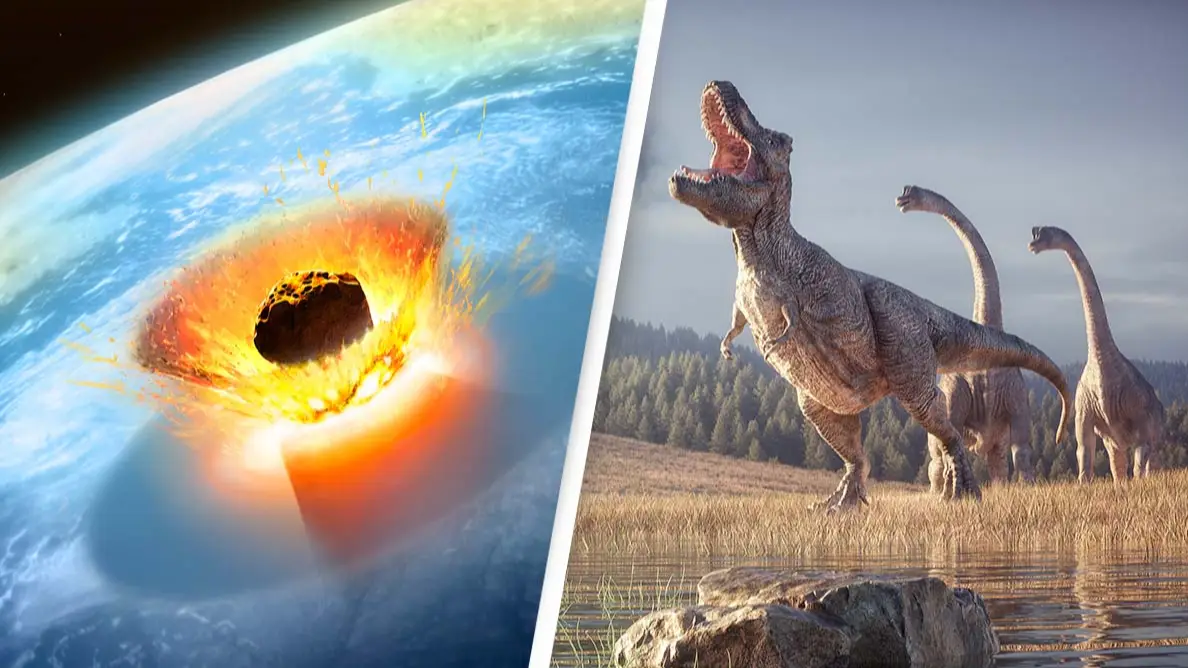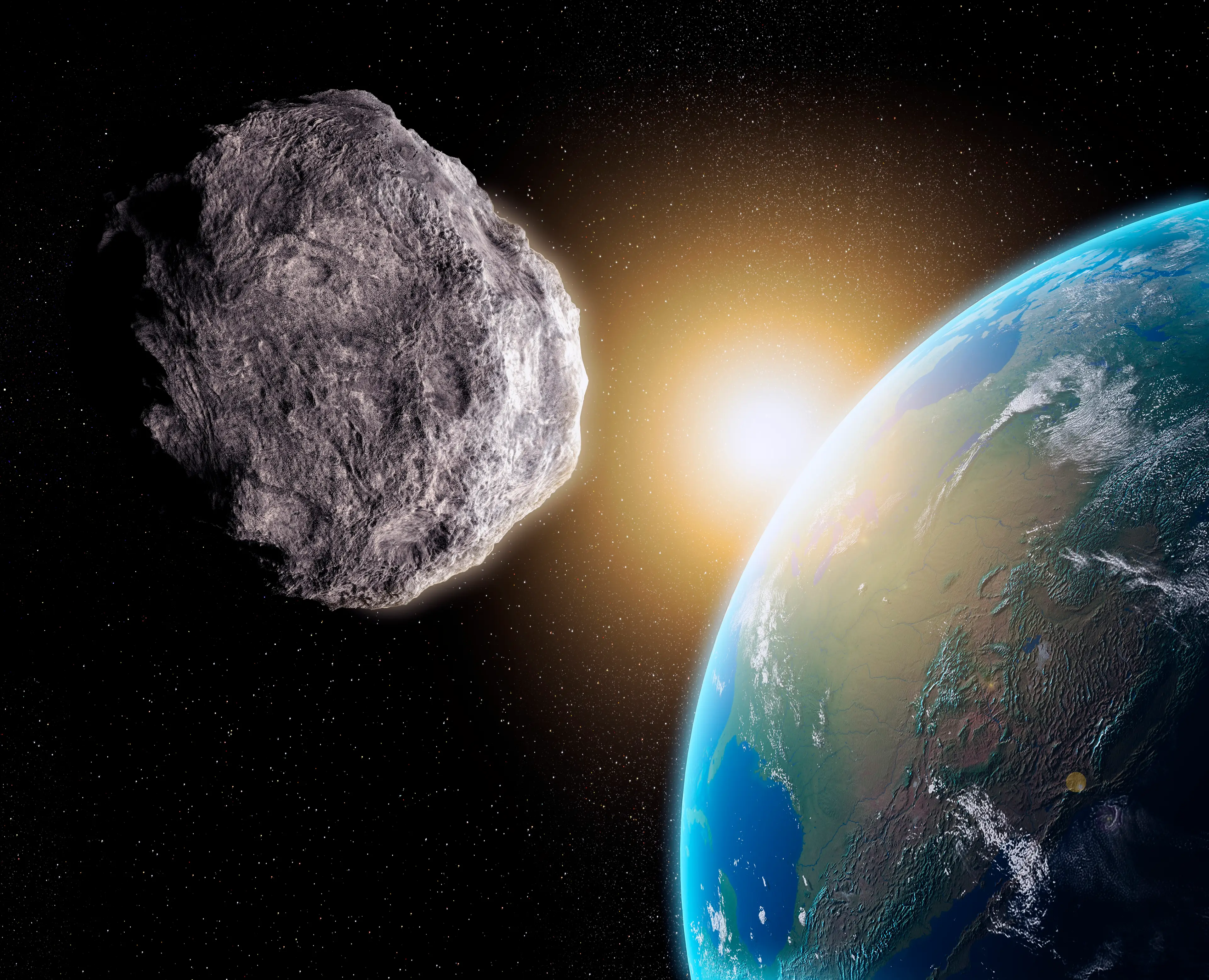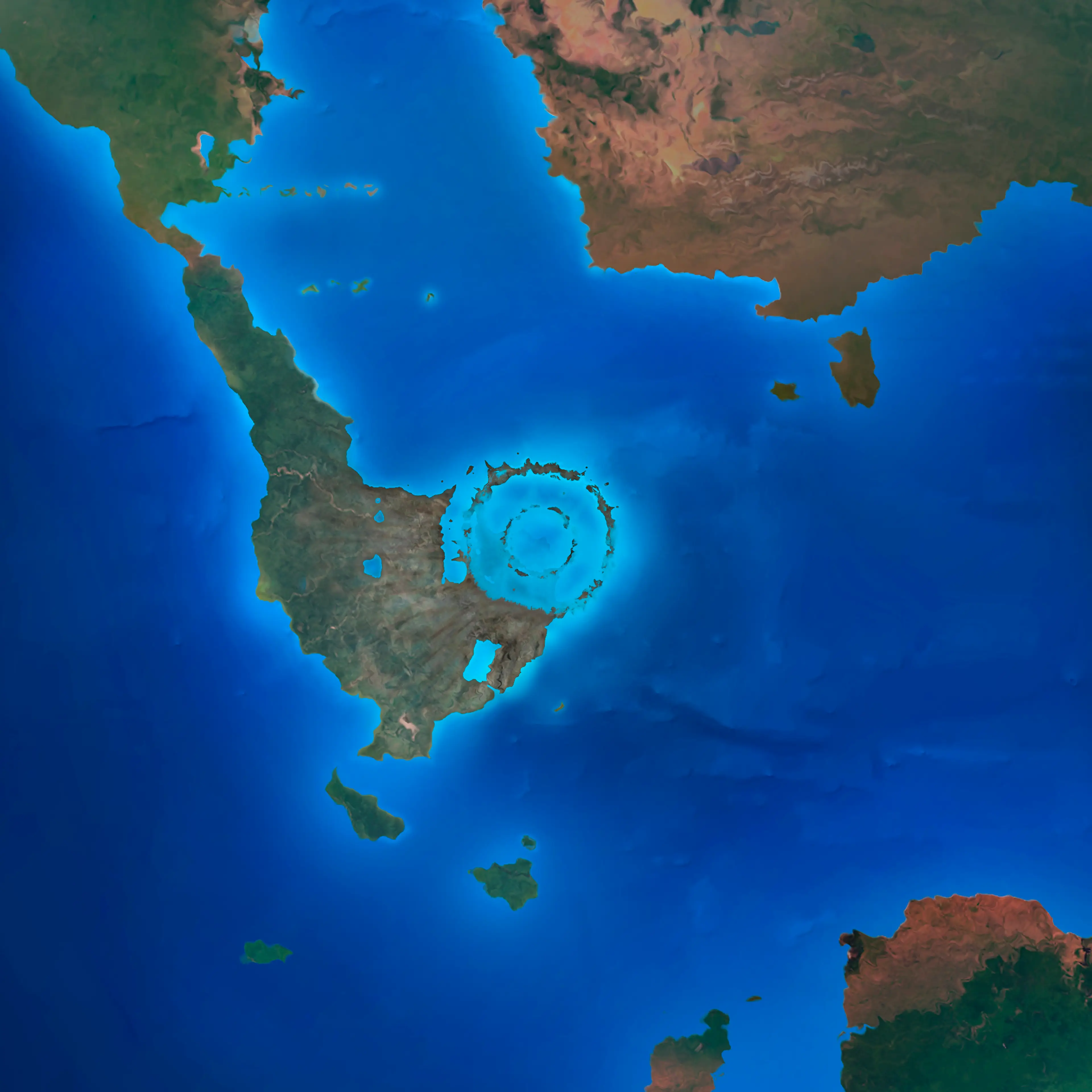
Scientists believe they've finally found where the asteroid that wiped out the dinosaurs came from.
As anybody who paid attention in science class would know, the dinosaurs' mass extinction occurred 66 million years ago when a rare asteroid collided with Earth.
The collision led to the death of about 60 percent of Earth's species, with research suggesting that the asteroid's aftermath likely covered the planet in ash and made its climate fatal.
Advert
Fun times.
And while the knowledge of where the asteroid came from, and even what type of asteroid it was, were previously murky — a new study reports that the asteroid flew in from the outer solar system, beyond Jupiter.

In that far, far, and I cannot stress this enough, far away point, a C-type asteroid formed and barreled towards Earth where it created the Chicxulub crater — colloquially known as the place where the asteroid hit Earth and left a giant vast crater.
The study titled 'Ruthenium isotopes show the Chicxulub impactor was a carbonaceous-type asteroid,' was published in the journal Science and details how researchers came to this conclusion.
They examined samples taken from around the same period in which the mass extinction happened, the Cretaceous and Paleogene eras. And also looked at samples from five other asteroid impacts taken in the last 541 million years, plus samples from impacts billions of years ago, to compare the data.

They found that the ruthenium isotopes (an element that is rare on Earth but common in meteorites) in the samples taken from around the time of the extinction, were all mostly uniform meaning that they were likely a cause of carbonaceous chondrites which is an unusual kind of meteorite.
This suggests that the Chicxulub impactor (aka the asteroid) formed far off in the solar system and was not a comet.
Scientists shared that this discovery could help solve age-old mysteries on the Earth's history and inform a better understanding of what objects collided with our planet from space.
